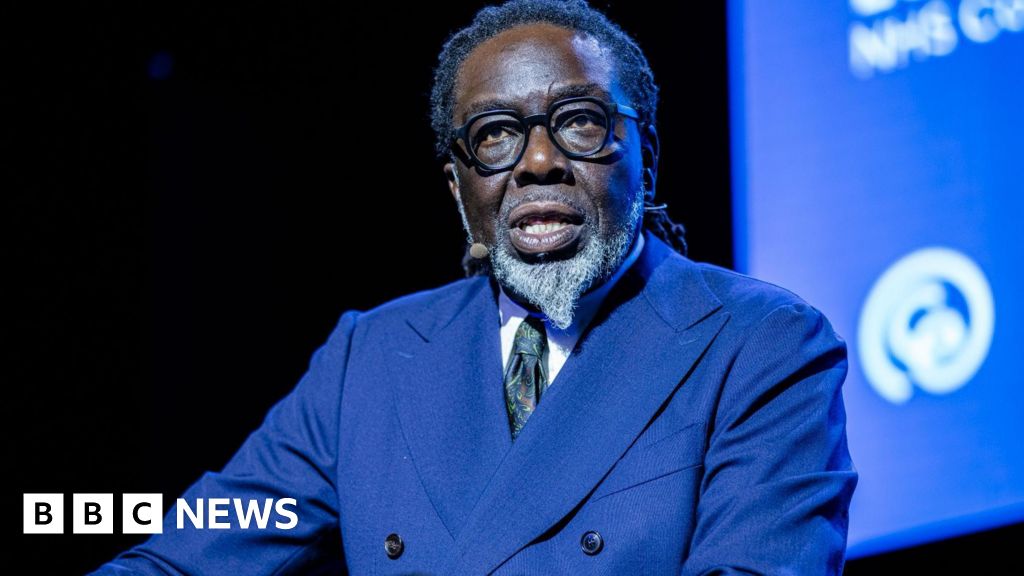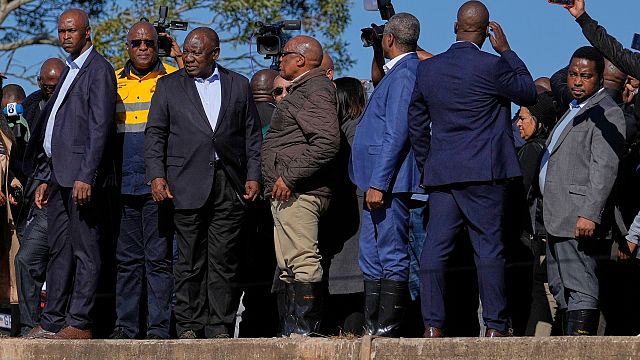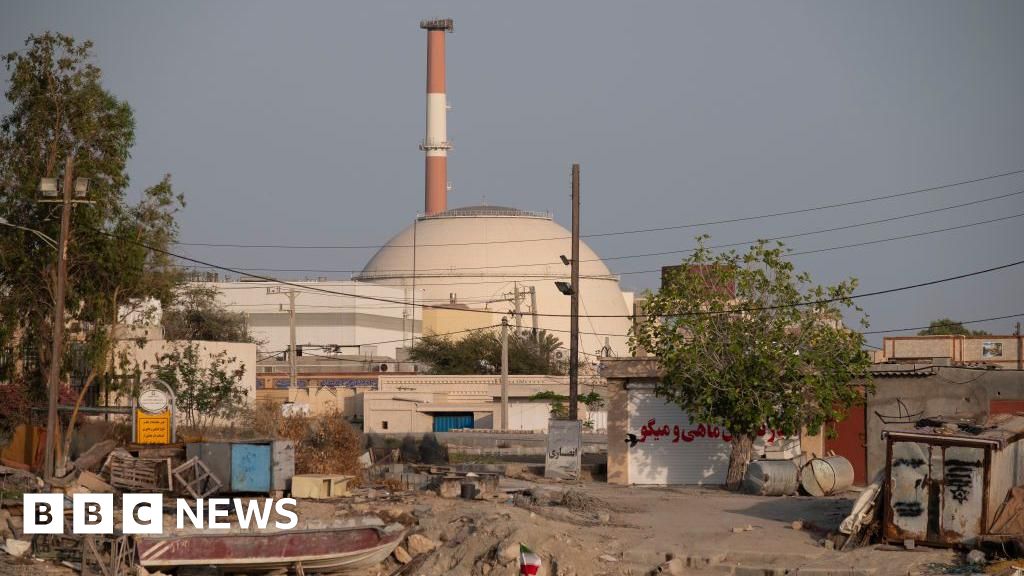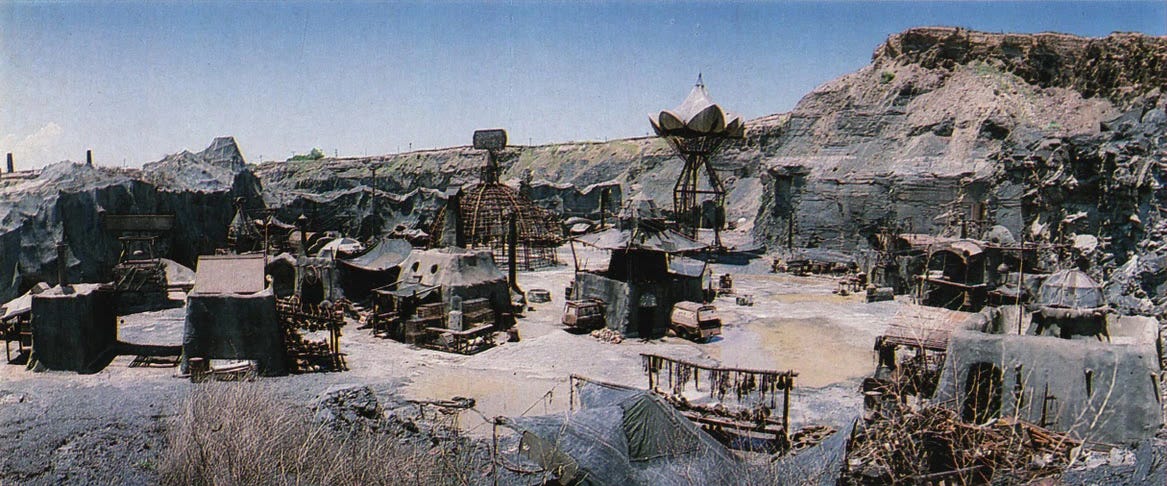Trump Talks Big on Global Diplomacy, but His Goals Are in Tatters


The president said he would bring a quick end to the wars in Ukraine and Gaza, and get China to bend on trade and Iran on its nuclear program. Instead, conflict is escalating. Donald J. Trump may be known for his combative, vindictive style. But as a candidate for president in 2024, he cast himself as a man of peace. His toughness and the “respect” he enjoys from foreign leaders, he insisted, would enable him to settle conflicts almost with a snap of his fingers. “My proudest legacy will be that of a peacemaker and unifier,” Mr. Trump said in his January inaugural address. The war in Ukraine could be ended in as little as 24 hours, he said. He would knock heads to reach an agreement between Israel and Hamas to stop the fighting in Gaza. And he said he would strike a nuclear deal with Iran, “because the consequences are impossible. We have to make a deal.” A day after Israel began a massive attack on Iran, however, Mr. Trump’s peace projects are in tatters. The fighting in Ukraine rages on and Mr. Trump appears to have lost patience with efforts to end that war. In Gaza, both Israel and Hamas cling to basic positions they staked out long before Mr. Trump took office. And instead of announcing a new nuclear deal with Tehran, a president who often denounces America’s history of “stupid” Middle East wars is trying to navigate a dangerous conflict between Iran and Israel, the closest U.S. partner in the region. “Five months in, Trump is watching prospects of U.S.-mediated negotiations between Russia and Ukraine, the U.S. and Iran, and Israel and Hamas crater. And he’s learning the hard reality that there are severe limits to U.S. influence, power and to his vaunted negotiating skills, especially when you don’t have an effective strategy and aren’t willing to use U.S. leverage to make it succeed,” said Aaron David Miller, a former U.S. diplomat who worked under six secretaries of state. The results undermine Mr. Trump’s argument that he can solve intractable problems with common sense and hard-nosed savvy while ignoring protocol, shunning experts and dispatching inexperienced envoys — including Steve Witkoff, his friend and fellow New York real estate mogul, who has tried to mediate all three projects. Mr. Trump also appears to be susceptible to conflating flattery and sweet talk from other leaders with a willingness to compromise their interests. President Vladimir V. Putin of Russia has praised Mr. Trump for years as strong and brave. But when Mr. Trump pressed him earlier this year for a meaningful compromise of his goals in Ukraine, Mr. Putin brushed him off. Similarly, in his first term, Mr. Trump seemed to develop an admiration for North Korea’s dictator, Kim Jong Un, whom he tried to talk into surrendering his nuclear program. But after two high-profile summits in Asia, Mr. Kim proved unwilling to make big sacrifices. Mr. Trump retains the soul of a New York real estate deal maker. But in each of those cases, he seems to have overestimated how much his counterparts shared his love of deal-making for its own sake. Mr. Trump is also finding that his efforts to cultivate China’s leader, Xi Jinping, and his pressure on Beijing have not led to Mr. Xi bending on the new trade war that the American president started against China this spring. Despite the frustrations, Mr. Trump has not given up his hopes for peace, including with Iran. Even as smoke billowed from bombed targets in Iran, Mr. Trump urged Tehran to continue negotiations over its nuclear program, much of which remains intact. But it is unclear whether Iran’s leadership will react to Israel’s attack with new concessions, or fresh defiance. The Americans no longer even have an Iranian negotiating partner — an Israeli strike killed Ali Shamkhani, the top nuclear negotiator for Tehran. Some prominent Trump supporters are urging him to continue diplomacy in the Middle East rather than veer toward greater involvement in Israel’s war with Iran. Dan Caldwell, a top Pentagon aide to Defense Secretary Pete Hegseth until he was fired this spring, wrote online on Thursday night that “yet another major war in the Middle East where America sends another generation of its sons and daughters to die in support of objectives that are not tied to our safety or economic prosperity is the last thing we need right now.” On the Gaza front, Mr. Trump spoke excitedly early in his presidency about a post-conflict scenario, saying the United States would “take over” the Palestinian territory and turn it into “the Riviera of the Middle East.” But Mr. Trump’s interest has since waned. The Israeli military, armed with American weapons, continues its attacks on Hamas, including lethal airstrikes in areas with displaced Palestinian civilians. Mr. Witkoff has argued that his lack of diplomatic experience is an asset, giving him fresh eyes on world conflicts, and other Trump allies often deride professionals who they say lack the boldness and smarts of private-sector businessmen. But many critics see a link between Mr. Trump’s frustrations and his decision to sideline government experts, including career diplomats and military and intelligence officers who can ensure that the president and his envoys have a complete grasp of the complex, historically rooted problems they face. Mr. Trump and his top officials “are bad at diplomacy because they’re bad strategists,” said Kori Schake, the director of foreign and defense policy studies at the American Enterprise Institute, a conservative research group. “They don’t think beyond their first move, and they don’t respect that counterparties also have domestic politics.” She added that “the Trump team seems to operate on the basis that others have no choice but to concede to U.S. demands, when allies and adversaries are making decisions to marginalize the U.S. and shield themselves from our influence.” Mr. Witkoff has been overseeing the talks on Iran, Israel-Gaza and Ukraine-Russia virtually on his own. He has met in Moscow with Mr. Putin, an experienced former intelligence officer, without any American aides present, and then echoes Mr. Putin’s talking points in public and private conversations. Earlier this year, Mr. Witkoff seemed surprised when Hamas rejected one potential deal with Israel that he thought it had accepted, and later conceded he may have been “duped” by the militant group, which Israeli and Biden administration officials have always said cannot be trusted. He also failed to push Israel into advanced cease-fire talks. Whatever his end goal, Mr. Trump seems to lack patience with the hard work required to get to real diplomatic outcomes. The Obama administration spent nearly two years negotiating the 2015 Iran nuclear deal, from which Mr. Trump unilaterally withdrew in 2018 — a move that critics say put Iran and Israel on an inevitable path to conflict. The same impatience helped lead to the implosion of diplomacy with North Korea in Mr. Trump’s first term. After decades of failure by Republican and Democratic administrations to constrain North Korea’s nuclear weapons program, Mr. Trump was trying something new and bold in his leader-to-leader diplomacy with Mr. Kim. But Mr. Trump did not push U.S. officials under him, or allow them enough time, to lay the groundwork for the two leaders to reach an agreement in Hanoi in 2019, and the effort imploded. On the tariffs on China, Mr. Trump appears to be negotiating against himself. After his worldwide tariffs, including on Chinese imports to the United States, rattled global markets this spring, a shaken Mr. Trump slashed his tariffs on Chinese goods while Beijing made only minor concessions. Mr. Xi, China’s leader, has refused to call Mr. Trump, and it was Mr. Trump who called Mr. Xi on June 5 to talk about trade, according to the Chinese government. A columnist recently coined a term for Mr. Trump’s waffling on trade policy that has gained wide circulation as a descriptor of the president’s broader diplomatic efforts: TACO, or Trump Always Chickens Out.
What's Your Reaction?
 Like
0
Like
0
 Dislike
0
Dislike
0
 Love
0
Love
0
 Funny
0
Funny
0
 Angry
0
Angry
0
 Sad
0
Sad
0
 Wow
0
Wow
0







































